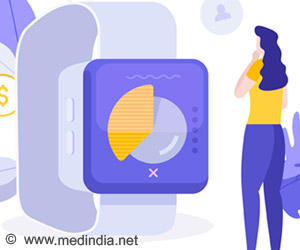The importance of icaros, traditional Peruvian melodies, during ayahuasca healing rites has been discovered by a UC Riverside researcher.
- Music has been proven in studies on psychedelic-assisted psychotherapy to have a profound effect on therapeutic outcomes
- Listening to icaros (medicinal songs) during ayahuasca rituals proved to be helpful in the treatment of alcohol and substance abuse
- These therapies made patients feel comfortable while guiding them through unpleasant memories and emotions
Role of Music as a Therapeutic Tool
For the first time in the center’s 30-year history, a music researcher at the University of California, Riverside has documented the good influence icaros have on men’s recovery. Ayahuasca, a plant-based hallucinogenic, translates as ‘vine of the dead’ in Quechua, Peru’s native language.The study’s findings were published in the journal Anthropology of Consciousness by UCR Ph.D. ethnomusicology student Owain J. Graham. Graham stated that the topic of his research needs to be further explored and the role of music as a therapeutic tool better understood so that music can be more effectively integrated with healing treatment options for patients suffering from addictions and other illnesses in the United States, and potentially globally.
According to prior studies cited by Graham and his colleagues, around 67% of participants who completed a nine-to-12-month program at Takiwasi Center did not return to substance usage. Approximately 86% of patients improved statistically significantly on the Addictions Severity Index, a metric used to evaluate substance misuse treatment.
180 replies were evaluated in a 2017-19 examination. All patients indicated that icaros altered their psycho-emotional state and affected healing connected to ‘unblocking’, a process also known as ‘cleaning’ and ‘removing’, referring to accounts of ayahuasca’s purgative effects, both physical and psychological.
“Ethnomusicologists and medical anthropologists understand the role that music plays in healing among many cultures,” said Graham, whose research interests include indigeneity and ritual music in South America. “While Western biomedicine’s foundation in science is strong, it has also neglected to explain the connection of mind-body and how music can affect healing.”
In its on-site residential program, the Takiwasi Center solely accepts men. It focuses on men’s health because men, not women, are most substance addicts in Peru and throughout the world. Respecting the advice of Amazonian healers, the program also needs an entire focus, including sexual abstinence, which is why women are not permitted to live within the rehabilitation patients’ community. Women are treated and permitted to participate in the center’s healing ceremonies.
Music Therapy with Psychedelic-Assisted Psychotherapy for Alcohol Deaddiction
The usage of ayahuasca has gained increasing global attention in recent decades, although it is an ancient cultural practice in the upper Peruvian Amazon region, according to Graham. Men at the Takiwasi Center benefit from a combination of controlled psychedelic-assisted psychotherapy and icaros sung in Spanish, Quechua, other Amazonian Indigenous languages, and sometimes French. Graham discovered via his studies that illnesses are caused by more than only physical ailments, but also by social and spiritual concerns.“I got to thinking, ‘Maybe I can add something to this conversation. Maybe I can help add some context and hopefully amplify the perspectives of traditional healers using these medicines/substances.’ The healers inherited practices going back hundreds of years to their ancestors,” Graham said.
Patients at the Takiwasi Center, where Graham spent several months in 2019 and 2022, participate in six-hour ayahuasca ceremonies led by traditional healers. With icaros, the healers lead individuals through emotional and mental transitions from one level to the next.
When it comes to a participant’s culture and demographic background, responses and experiences were consistent. Graham’s sample includes men from 58% of South America and 42% of Western Europe.
Are Icaros and Ayahuasca Healing Ceremonies Enough to Change a Person’s Substance Abuse
Graham warns against literal interpretations and unrealistic expectations. "Traditional healing takes time, which is why Takiwasi’s program is nine to 12 months long. Also, during this period participants have time to integrate lessons and process the trauma that is brought up by ayahuasca ceremonies," Graham said.“I would caution people in both directions. A lot of people have been hearing more about ayahuasca in the past 10-15 years. Some claim they were reborn, with some major trauma healed after one ayahuasca session. That can happen, but that is not the normal case,” Graham said. “What’s important to note is that there needs to be more collaboration between researchers across disciplinary lines. Clinical researchers should be thinking of more traditional uses as they create therapies in hospital-type environments.”
Source-Medindia












